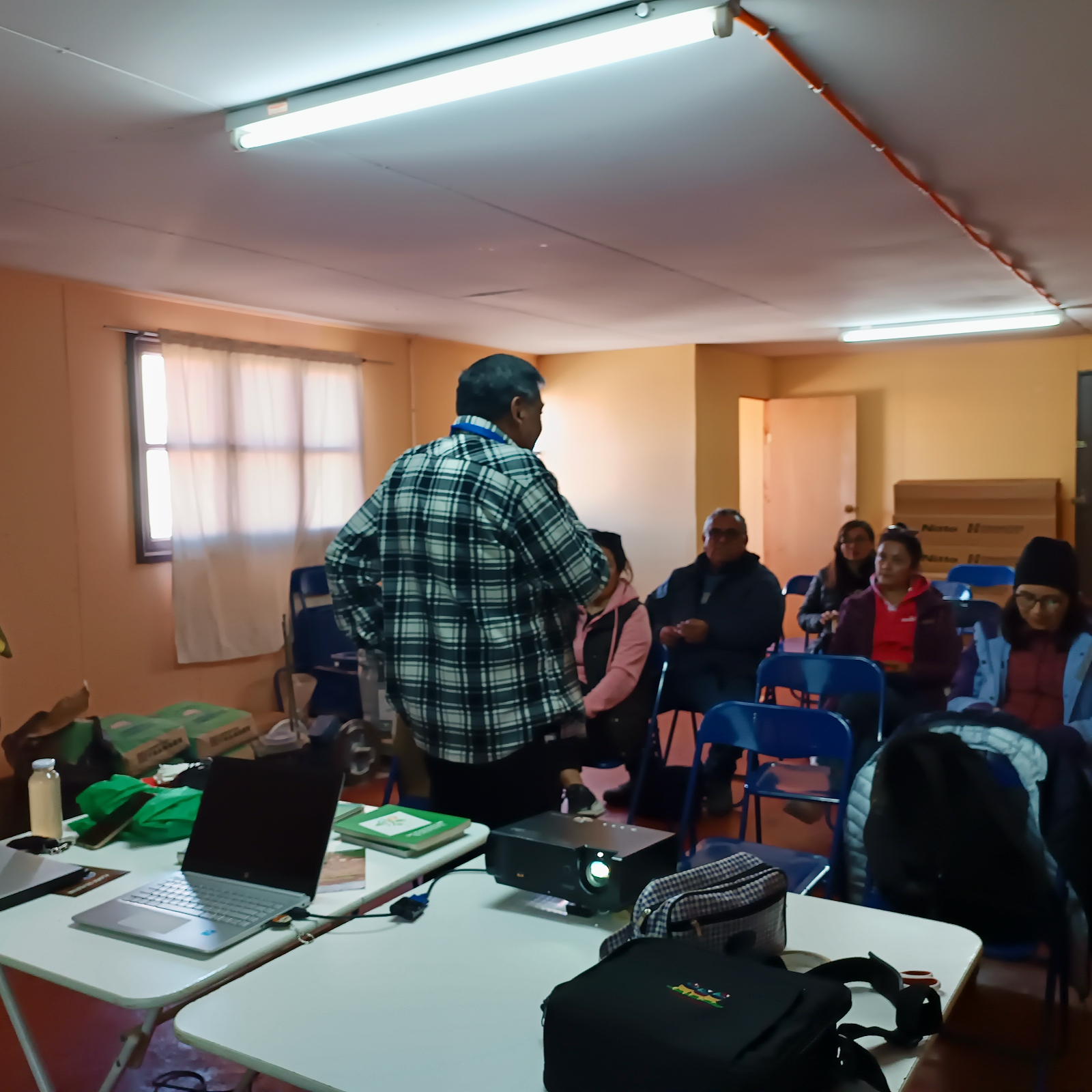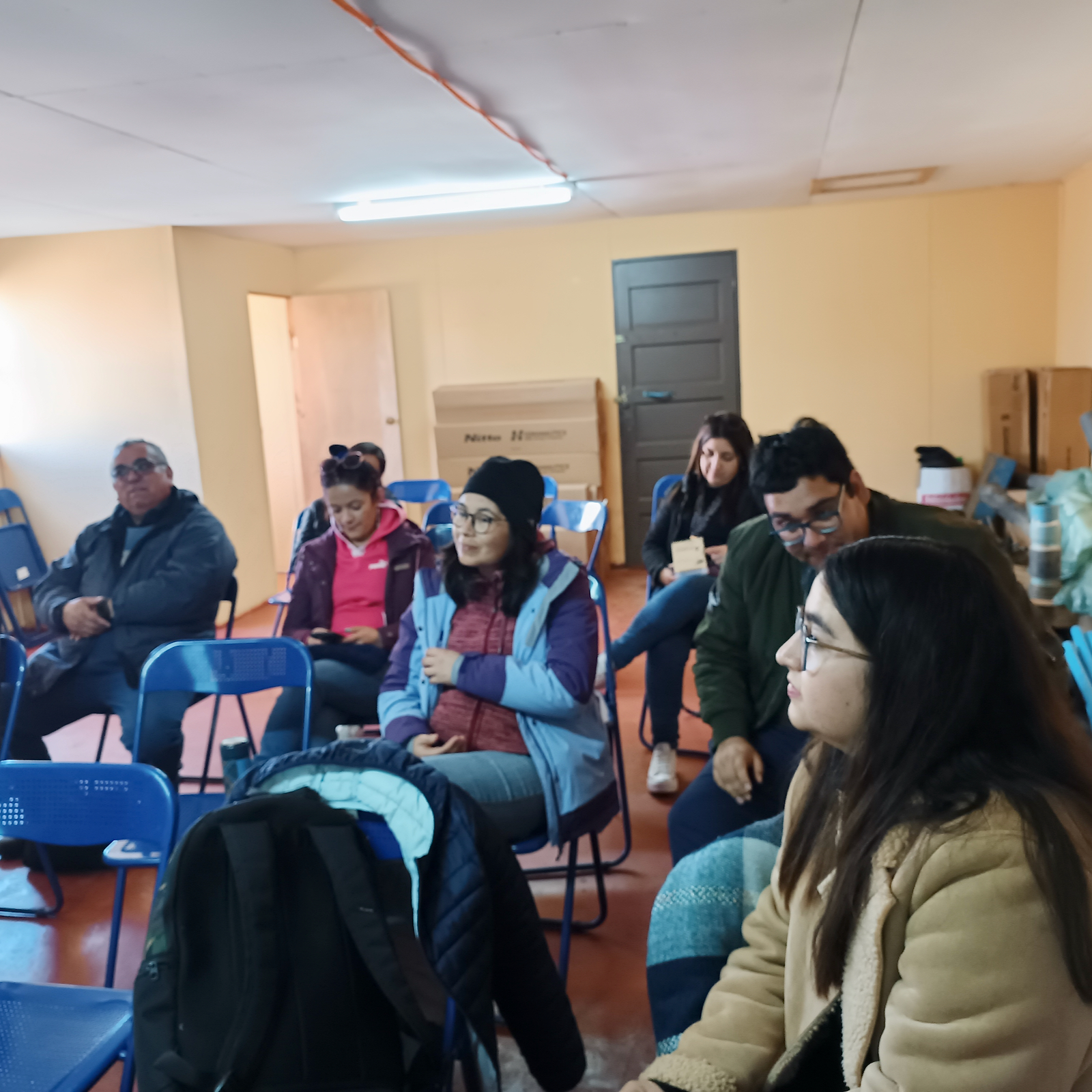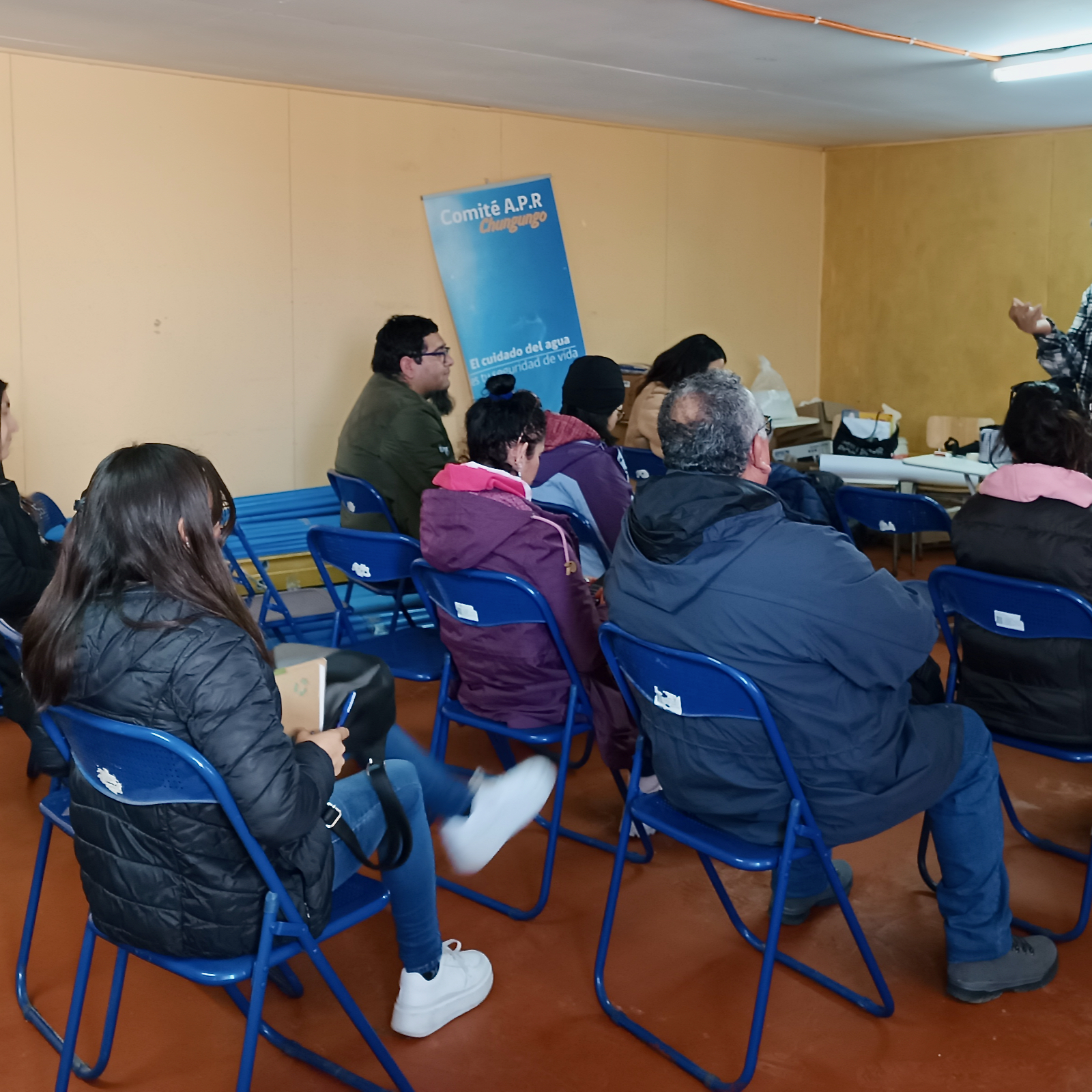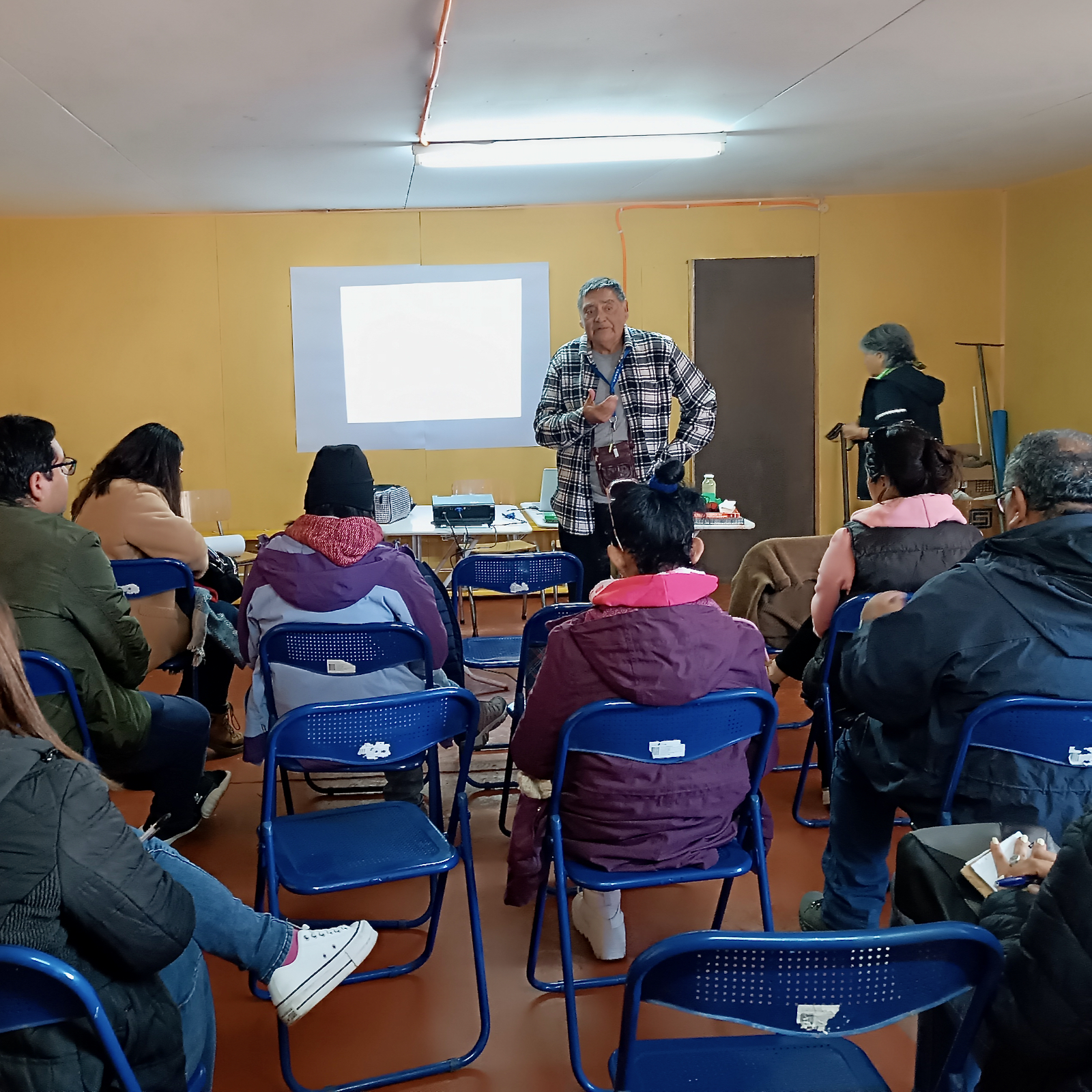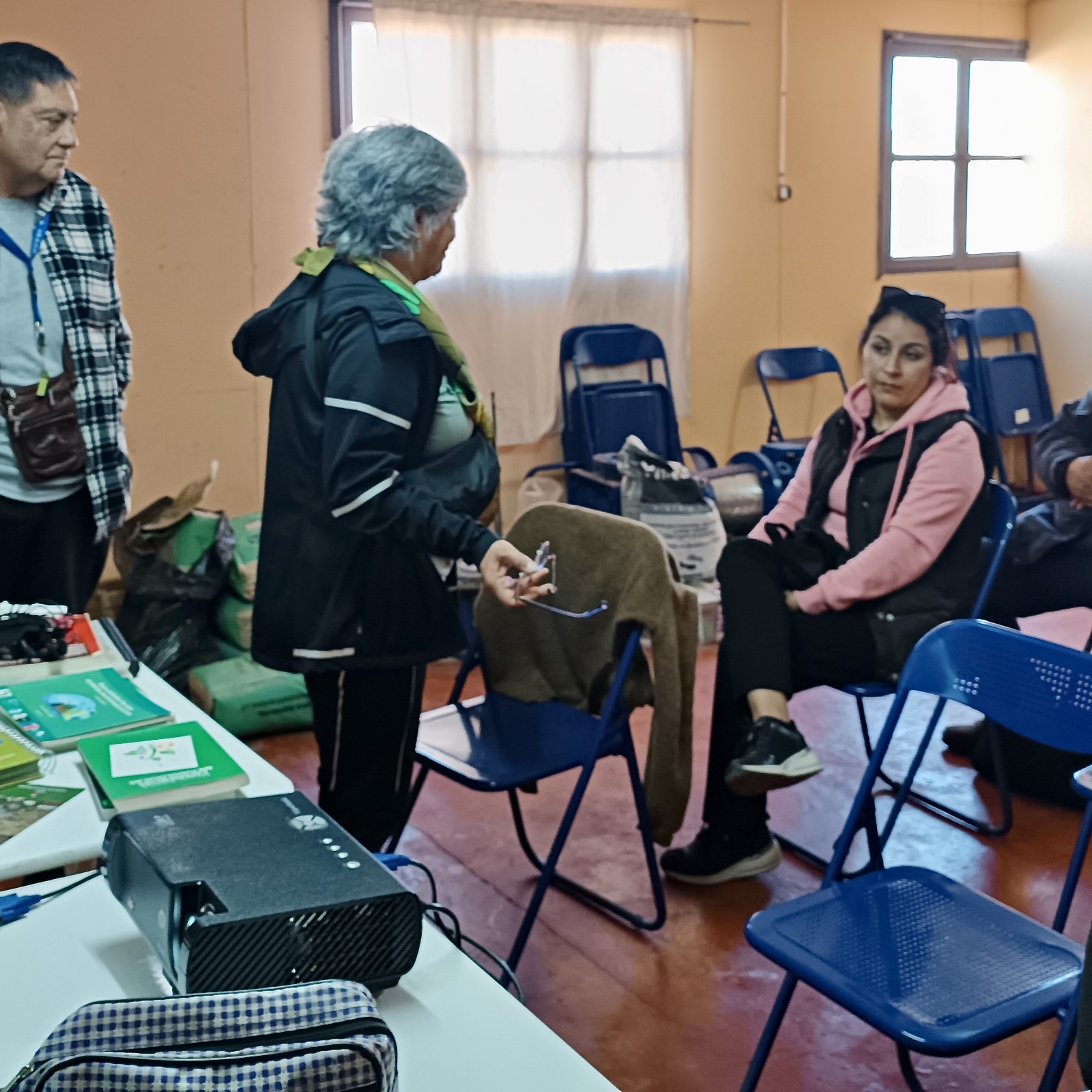Landau September 11, 2023
On August 17 and 18 Sphenisco-Chile organized the two-day seminar "Environmental Education for Sustainability in and with the Humboldt Archipelago" in Chungungo, municipality of La Higuera. The objective was to promote environmental education in the schools of the Coquimbo region, particularly in the schools of the municipality of La Higuera. The municipality of La Higuera includes the Humboldt Archipelago and the correspondent marine protected area, for which currently an approval procedure is in process. The pedagogues also seized the opportunity of the workshop to visit Chungungo Bay, the area that is most threatened by the planned port and desalination projects. For most of the 12 teachers, the seminar was a continuation of last year's workshop. The meeting was held at the headquarters of Agua Potable Rural (rural drinking water supply), and the training was sponsored by the Neumünster Zoo.
Course of the Seminar
The workshop consisted of three modules and an excursion along the coast. The modules involved the following topics:
Module 1 "Skills and Competencies in Environmental Education",
Module 2 "Environmental Ethics, a LifeTask" and
Module 3 "Analysis of Environmental Education in the Coquimbo Region".
In Module 1, speaker Fernando Muñoz presented an overview of the importance of some learning theories for environmental education. He also emphasized the conflict of teaching diversity in a school and cultural environment that promotes homogeneity, and pointed out that there are no role models for „teaching diversity“. Señor Muñoz encouraged the participants by saying, "Let's give environmental education a chance, it can go beyond the content and the fixed institutional framework, it could also bring the institutional framework and the assumptions that guide our education into line anew."
Afterwards, the pedagogues were sailing along the coast of Chungungo and Totoralillo Norte. En route, they were informed about cultivation areas and historical aspects. The tour was led by a fisherman from Chungungo and a local guide from Caleta de Hornos complemented the information.
In Module 2 "Environmental Ethics, a Life Task", environmental concepts and systemic views of the environment were introduced. Teachers concentrated on core themes of environmental ethics such as responsibility, respect, love of life, ecosystems and fellow human beings. Values that are all based on participation and which represent motives of individual behavior, thus influencing society, culture and human interactions.
In Module 3, "Analysis of Environmental Education in the Coquimbo Region," the pedagogues were assigned the task of implementing learning objectives in subjects such as language, science, mathematics and history. To do so, they were divided into small groups and each group had to develop pedagogical concepts for the proposed area and then present them to the other participants.
Finally, Team Sphenisco-Chile presented "Archipelago, Hope Spot for the World's Oceans." The team members presented an overview of concepts, ecological, social and economic factors that characterize the Humboldt Archipelago and elaborated on the importance of the archipelago for the conservation of biodiversity. They finished by addressing the Marine Protected Area Declaration (AMCP-MU) and the current implications of this declaration for the protection of the Humboldt Archipelago.
Conclusion
The objective was to provide theoretical concepts, values, attitudes, content and skills that can be implemented across subjects. The presented methods will enable trained teachers to address environmental issues in their daily lessons to teach the benefits of natural resources, knowledge about nature, appreciation as well as respect for ecosystem dynamics.
Moreover, the training was an appeal to teachers to strive to develop skills that help students consider their own needs, think critically, and respect others as fellow humans without any discrimination.
Sphenisco Chile‘s point is to fill educational gaps to reach and motivate more people to spread the word about the importance of protecting and preserving the Humboldt Archipelago.
W.K.
translated by Angelika Veelken
Note
Karen Quezada S. prepared the invitation letter and program for the seminar "Environmental Education for Sustainability" as well as the final report on it. The article is based on information from these documents.



